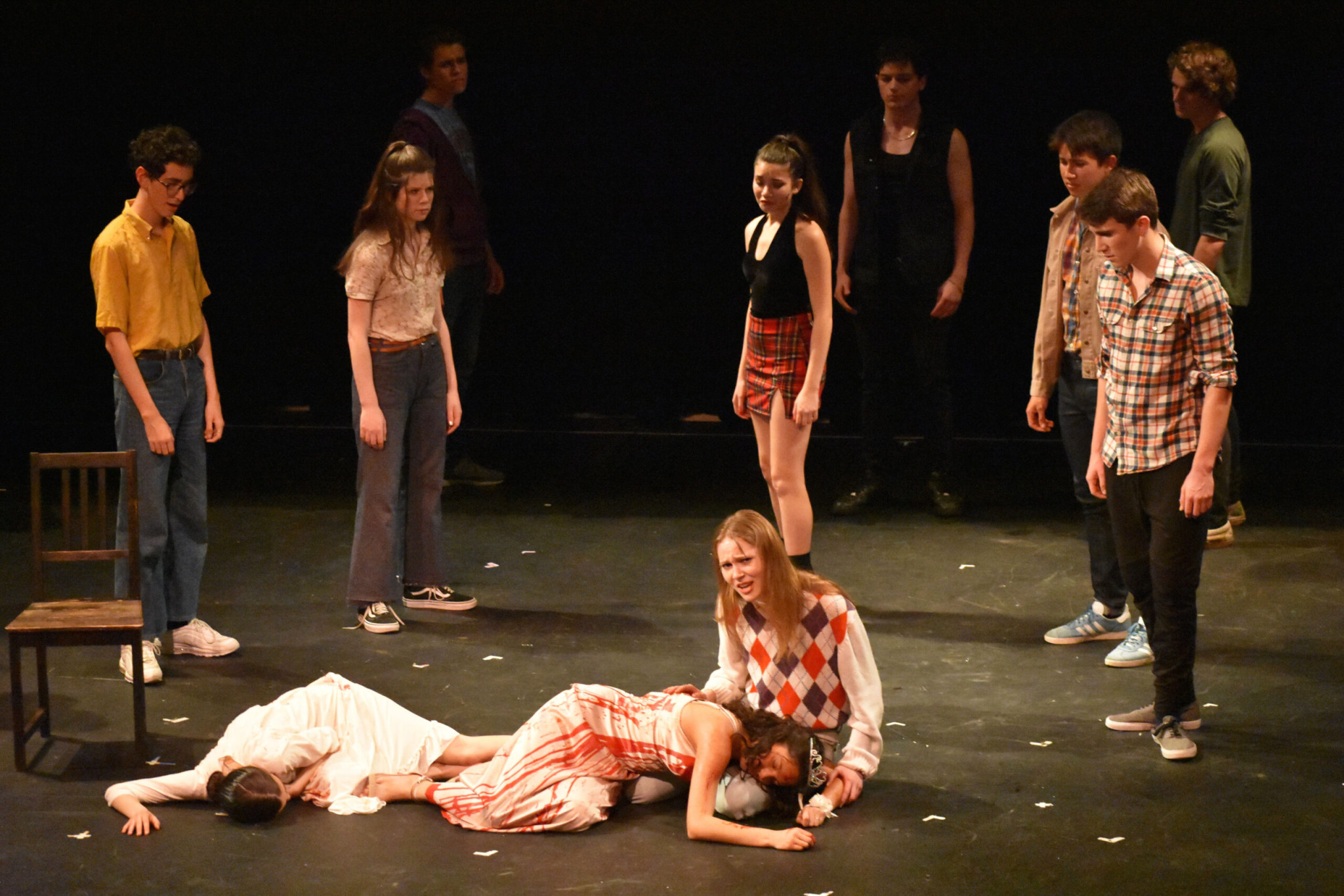On April 20, Berkeley High School (BHS) closed its showing of the spring musical. Lead by teacher Jordan Winer and two student directors, Maya Ezekiel and Uma Supatra-Campbell, this year’s production was Lawrence D. Cohen’s adaptation of the Stephen King novel Carrie.
The show was very popular among BHS students and families, and on closing night the theater was packed.
Carrie seems to have changed the perception of BHS; it’s the first time that a student production has gained so much attention from the general student body. Part of this is due to the fact that students were able to go with their classes to see previews of the play before its opening. This gave many people who wouldn’t otherwise have been interested in the musical a chance to see the play, and left them wanting to see more.
Part of the appeal of this year’s production was the choice of the play. Carrie is far from a typical musical; for one thing, it’s much more modern. Many theaters choose to stick to the classics, but most of those musicals were written in a very different time period and aren’t really applicable any longer. The modernity allows Carrie to be relatable for high school students, which was essential to its success. The central themes of identity and social pressures made it much more engaging for a high school audience since it is always easier to enjoy a show when you can relate to the characters and themes.
The setting of prom was perfectly timed and seemed to strike a chord with the audience, again emphasizing the role of relatability in this production. Explicit lyrics, bawdy scenes, and rock-inspired orchestration make it much more entertaining than your typical song and dance number. It was smart to choose a musical that would click so well with its intended audience.
Despite being a largely student-run piece, Carrie defied expectations with this show’s impressively professional feel. From a behind the scenes standpoint, there were impressive and believable effects that succeeded in adding to the show’s supernatural themes. That’s no small feat for a small-budget school play. On stage, the actors went above and beyond to create a spectacle. The vocal performances were quite good, especially for some really challenging solos. As with most musicals, Carrie’s pivotal moments are mostly marked by songs. In some cases, a song can feel removed from the environment of the show because it’s sung. But in this show, the actors sang with emotion and performed each song as opposed to just singing it. This made many scenes much more powerful, most obviously in the scenes with Carrie and her mother, which change tempo and mood quickly. The singing helped to convey the character’s feelings, especially in moments of mounting tension. There were also many different reprises of the main theme that were cleverly twisted to accommodate a new context. Stellar vocal performances throughout allowed the show to really become what it was.
For an open audition high school production, Carrie was exceptional. None of the lines felt monotone, and no one ever looked out of place. All of the actors presented a distinct character by using space well. The main characters each had a distinct posture and way of moving that portrayed their personalities effectively.
But perhaps the most important part of acting is timing; if every line is said at the same pace, with the same pauses, it can ruin a show. However, the actors of Carrie said every line with an appropriate pace and even managed to maintain a natural and suitable speed of conversation between multiple characters. Simple timing in delivery of lines allowed side characters such as Norma and Freddie to stand out.
Carrie was a really exciting production for BHS for two reasons: first, it showed that students can far exceed expectations and create a powerful show. It was all done by drawing from the talent pool that is the BHS student body. Second, it shows that high school students are still interested in theater when done well.
This show drew large crowds of teenagers on Friday and Saturday night, something most school events can’t do. It just goes to show that if you can make something relatable, teenagers will still appreciate theater.





